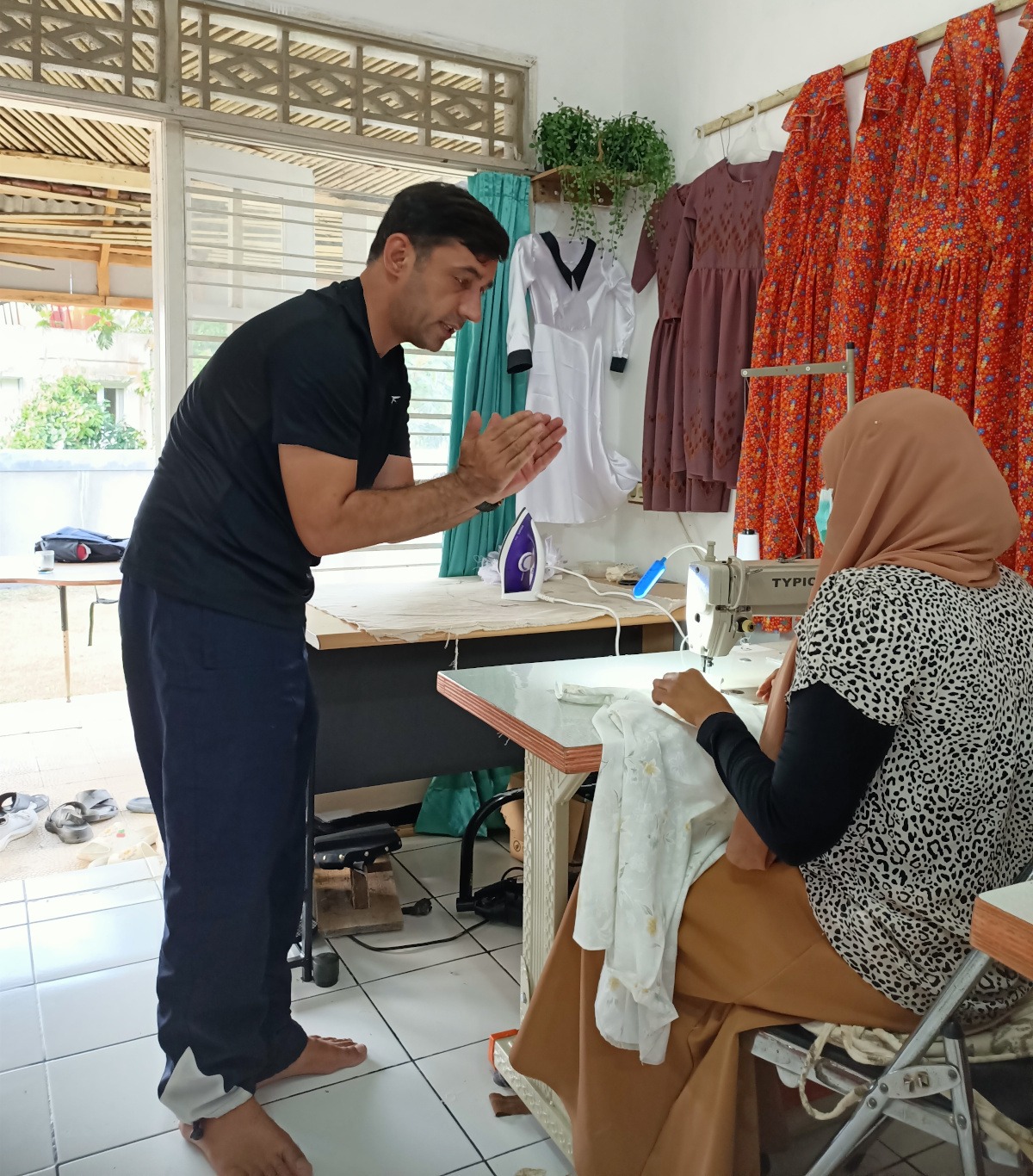
Indonesia, an archipelago of over 17,000 islands, has a long history of being a temporary stop and place of refuge for many refugees and asylum seekers. The country has inadvertently become their extended home, where local communities and organisations such as Jesuit Refugee Service (JRS) Indonesia offer a very warm welcome and support. According to UNHCR, as of September 2023, there were 11,825 refugees and asylum-seekers in Indonesia from 52 different countries, with the majority from Afghanistan, Somalia, and Myanmar. Many refugees struggle to find safe and permanent solutions due to limited pathways to safety. They face restrictions on work and education, making it difficult to build a secure future.
Amidst the bustling streets of Jakarta lies the humble office of JRS Indonesia, an organisation dedicated to providing support to those displaced by conflict and persecution. Within its walls, a team of passionate individuals dedicates their days to alleviating the plight of refugees and asylum-seekers and empowering them to rebuild their lives. The programme, a beacon of hope for displaced individuals, provide essential services, from food and shelter to education and healthcare, as well as psychosocial support.
During my visit earlier this year, I was deeply moved by the resilience and strength of the refugees I encountered. Their stories, etched with pain and perseverance, were a constant reminder of the determined human spirit. Their resilience was profound, evident in the lines on their faces and the quiet determination in their eyes.
 One particularly memorable encounter was with a young man named Ahmad*, who had fled his war-torn homeland. Despite the trauma he had experienced, Ahmad remained determined to make a positive difference in the lives of his fellow refugees. With his experience in tailoring, he had the idea of creating a learning centre for refugees interested in garment-making. Initially starting with a modest number of students and limited class days, the centre rapidly expanded due to its success. The learning centre has transcended its initial purpose, evolving into a vibrant community that provides a sense of belonging and psychosocial support for refugees struggling to adjust to their new lives. He said: “I am happy to see other people happy, seeing the students busy studying. What I love the most about this place is it has pulled together people from different countries. We don’t care about the language barrier. When I see students come with gloomy faces, I make jokes, and they laugh.” Ahmad has transformed his personal tragedy into an opportunity to positively impact the lives of others.
One particularly memorable encounter was with a young man named Ahmad*, who had fled his war-torn homeland. Despite the trauma he had experienced, Ahmad remained determined to make a positive difference in the lives of his fellow refugees. With his experience in tailoring, he had the idea of creating a learning centre for refugees interested in garment-making. Initially starting with a modest number of students and limited class days, the centre rapidly expanded due to its success. The learning centre has transcended its initial purpose, evolving into a vibrant community that provides a sense of belonging and psychosocial support for refugees struggling to adjust to their new lives. He said: “I am happy to see other people happy, seeing the students busy studying. What I love the most about this place is it has pulled together people from different countries. We don’t care about the language barrier. When I see students come with gloomy faces, I make jokes, and they laugh.” Ahmad has transformed his personal tragedy into an opportunity to positively impact the lives of others.
I also had the opportunity to meet with a young couple with two young children who had fled their home country of Afghanistan in search of a safer future for their family. Due to their inability to work or earn an income, they had experienced homelessness and relied on financial assistance from the programme to meet their daily needs. Despite their struggles, they demonstrated an unwavering thirst for knowledge. Zara**, the wife, eagerly participated in English classes, while her eldest daughter diligently studied English, math, and science.
My encounter with the refugee programme in Indonesia was a profound and transformative experience. It taught me the true meaning of resilience, the power of hope, and the transformative power of compassion. The work of the refugee programme is not merely about providing assistance; it is about restoring dignity, empowering individuals, and nurturing the seeds of hope for a brighter future.
*Ahmad’s story was featured in Jesuit Mission Australia’s August 2023 e-news
**Zara is pseudonym
 Willy Tan is the International Programmes Coordinator for Jesuit Mission Australia and a member of the JCAP Migrants and Refugees Network. Jesuit Mission Australia proudly supports JRS Indonesia’s refugee programme, which provides vital assistance to refugees and asylum seekers in the country.
Willy Tan is the International Programmes Coordinator for Jesuit Mission Australia and a member of the JCAP Migrants and Refugees Network. Jesuit Mission Australia proudly supports JRS Indonesia’s refugee programme, which provides vital assistance to refugees and asylum seekers in the country.

